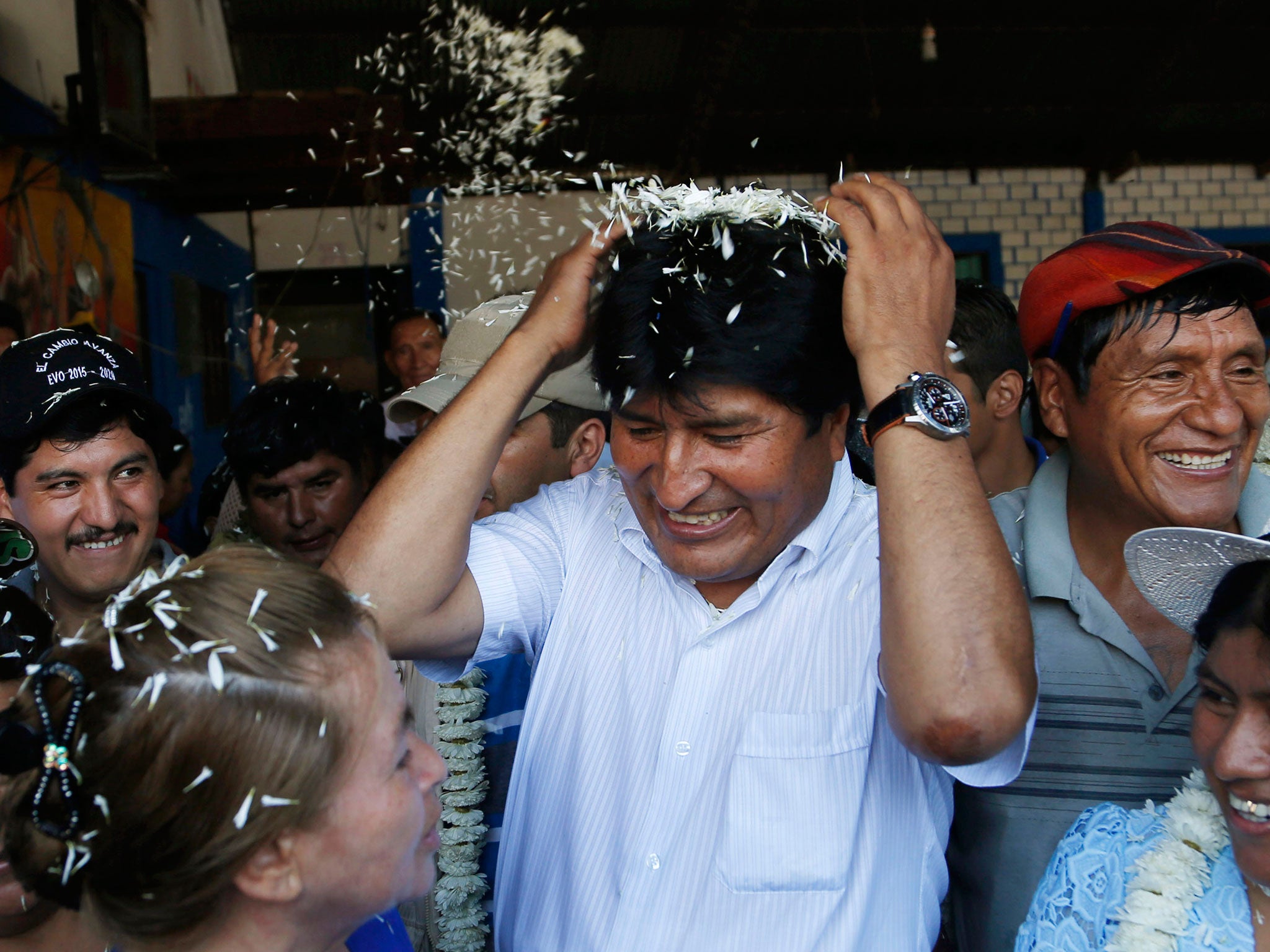Bolivia’s President Morales on track for an unprecedented third term
The country's first indigenous president has used a commodities boom windfall to create subsidies for schoolchildren and pensions for the elderly

Your support helps us to tell the story
From reproductive rights to climate change to Big Tech, The Independent is on the ground when the story is developing. Whether it's investigating the financials of Elon Musk's pro-Trump PAC or producing our latest documentary, 'The A Word', which shines a light on the American women fighting for reproductive rights, we know how important it is to parse out the facts from the messaging.
At such a critical moment in US history, we need reporters on the ground. Your donation allows us to keep sending journalists to speak to both sides of the story.
The Independent is trusted by Americans across the entire political spectrum. And unlike many other quality news outlets, we choose not to lock Americans out of our reporting and analysis with paywalls. We believe quality journalism should be available to everyone, paid for by those who can afford it.
Your support makes all the difference.Evo Morales appeared to be heading for an unprecedented, third term in presidential elections in Bolivia on Sunday. The leader of the coca-growers’ union is credited with bringing economic and political stability to the country, where he has spread the wealth from commodities.
Bolivia’s first indigenous president has become such an institution that stadiums, markets, schools, state enterprises and even a village have been named in his honour.
His anti-imperialist and socialist rhetoric notwithstanding, the 55-year-old native Aymara has been an able steward of Bolivia’s natural gas and mineral wealth. The only wrinkle in his march back into office came on Saturday when hackers invaded the Twitter account of Bolivia’s state television on the eve of elections and issued a bogus tweet saying that the President had been gravely wounded in an assassination attempt.
Mr Morales responded by appearing at a news conference in the Chapare region, where he was playing football with fellow coca-grower union leaders. He blamed the hoax on political opponents.
Since Mr Morales took office in 2006, a boom in commodities prices has increased export revenues ninefold, Bolivia has accumulated $15.5bn (£9.6bn) in international reserves and economic growth has averaged 5 per cent annually, well above the regional average.
He has used the windfall to create subsidies for schoolchildren and pensions for the elderly. Half a million people have put poverty behind them.
Mr Morales was favoured in pre-election polls to defeat by some 40 points the closest of four challengers, cement and fast-food magnate Samuel Doria Medina, and win all nine states.
Analysts say Mr Morales’s goal in the polls is to try to better his previous best showing – 64 per cent of the vote in 2009 – and maintain a two-thirds control of the senate and assembly. That would enable him to change the constitution, which restricts presidents to two terms of five years, so he could run again.
A court ruled last year that Mr Morales could run for a third term because his first election win occurred before a constitutional rewrite.
AP
Join our commenting forum
Join thought-provoking conversations, follow other Independent readers and see their replies
Comments